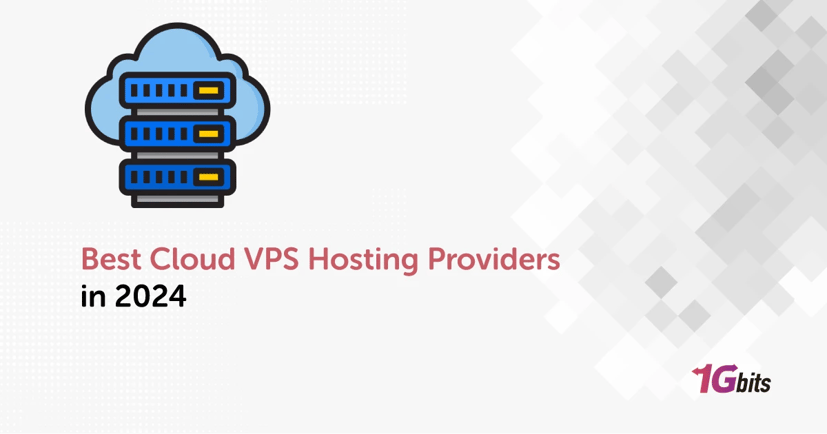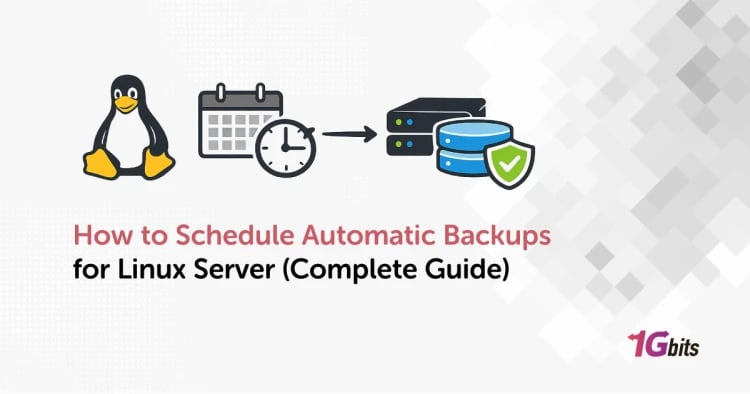In today's digital landscape, having a reliable and scalable hosting solution is crucial for businesses and individuals alike. Cloud VPS (Virtual Private Server) hosting has emerged as a popular choice, offering a balance of performance, scalability, and cost-effectiveness. In this article, we explore what Cloud VPS is, why it's so popular, key considerations for choosing one, and a review of the best Cloud VPS providers.
For those looking for a more budget-friendly hosting option, you might also consider a cheap VPS, which provides a cost-effective solution while still offering dedicated resources and flexibility.
To further enhance your understanding of Cloud VPS and its various applications, it's important to recognize the role that specific operating systems play in optimizing performance. One notable option is CloudLinux OS, designed to improve security, stability, and resource management in shared hosting environments. Learn more about its features and how it complements VPS hosting in our article on What is CloudLinux OS.
---
☁️ What is Cloud VPS?
First, let’s start with the Cloud VPS meaning. Cloud VPS combines the advantages of traditional VPS and cloud computing. It involves creating virtual servers on a cloud infrastructure and providing dedicated resources like CPU, RAM, and storage. Unlike shared hosting, where resources are divided among many users, the best VPS for cloud computing ensures more consistent performance and greater control over server settings.
To learn more about purchasing a VPS, you can refer to our detailed guide on how to buy a VPS, which provides a step-by-step breakdown of the factors to consider and the purchasing process. This can help you make an informed decision when selecting the best Cloud VPS provider based on your needs.
For a broader understanding of virtualized environments and how they compare to cloud solutions, consider exploring the differences between VPS vs. Cloud. This can help you pinpoint the ideal hosting model for your specific projects and operational demands.
---
🚀 Why is Cloud VPS So Popular?
Cloud VPS has surged in popularity over recent years, becoming the best VPS for developers and businesses alike. This rise can be attributed to several key factors that make Cloud VPS an appealing option for a wide range of applications. Before we introduce the best Cloud VPS hosting, we delve into the specific reasons behind its widespread adoption:
In addition to its growing popularity, Cloud Servers play a significant role in offering flexible and scalable resources, ensuring that businesses can dynamically adjust to varying workloads without compromising performance. To learn more about how cloud servers differ from traditional hosting and their impact on modern businesses, explore our comprehensive guide on Cloud Servers.
📈 Scalability on Demand
One of the primary reasons Cloud VPS is favored is its inherent scalability. Businesses experiencing traffic spikes can easily increase resources such as RAM and CPU cores with just a few clicks. This flexibility allows for seamless adaptation to changing demands, preventing downtime and ensuring a smooth user experience. This scalability also makes it easier to test different server configurations without long-term commitments—if you're looking for a short-term solution, consider a Trial VPS to explore the benefits before making a decision.
💰 Cost-Effective
Cloud VPS offers a pay-as-you-go model, meaning you only pay for the resources you use. This prevents overspending on unused resources, unlike dedicated servers which often involve higher costs regardless of usage levels. This makes it an excellent choice for those seeking the cheapest Cloud VPS without sacrificing performance.
⚡ Reliability and Uptime
Reputable Cloud VPS providers guarantee high uptime, often aiming for 99.9% or higher. This reliability ensures your website remains accessible, which is crucial for maintaining customer trust and satisfaction. The distributed nature of cloud infrastructure inherently provides better redundancy than single physical servers.
🖥️ Control and Customization
With Cloud cheap VPS, users have greater control over their server environment. Many providers offer root access, allowing for customized configurations and installations. This level of control is beneficial for developers and businesses with specific needs. For those looking for flexible and scalable hosting options, exploring a VPS rental service can provide cost-effective solutions with dedicated resources.
---
✅ Key Considerations for Choosing the Best Cloud VPS
When selecting the best Cloud VPS provider, it's crucial to consider several factors to ensure you get the best service for your needs. Each business has unique requirements, so understanding these considerations can help you make an informed decision. Now that you know what is Cloud VPS, below are some key points to keep in mind when evaluating potential providers.
1. 📈 Scalability
Choose a provider that offers seamless scaling options. This capability is vital for handling unexpected traffic surges and for businesses with fluctuating demands. Ask yourself:
- Does the provider offer easy scaling for resources (e.g., RAM, CPU, storage)?
- Are temporary upgrades available for traffic spikes or specific project needs?
- Can you downgrade your resources to control costs during periods of lower demand?
2. ⚡ Performance
Performance is critical for any online presence. Look for providers that offer SSD storage (or NVMe for even faster speeds), powerful CPUs, and sufficient RAM to ensure your website or application runs smoothly and efficiently. A fast website enhances user experience and can significantly boost search engine rankings.
3. uptime Reliability and Uptime
Ensure your provider offers robust uptime guarantees (e.g., 99.9% SLA) and redundant infrastructure. Consider data center locations and the provider's uptime history to make an informed choice. High availability minimizes downtime and ensures your services are always accessible.
4. 🔧 Control and Customization
Look for providers that give you ample control over your server environment:
- A variety of operating system choices (e.g., Linux VPS, Windows VPS)
- Root access for full server control and the ability to install custom software
- Intuitive control panels like cPanel or Plesk for easy management, if preferred
For those specifically looking for a powerful **Linux VPS**, it's important to choose a provider that not only offers strong hardware but also flexible distributions and robust support to fully leverage the open-source environment.
5. 🔒 Security
Security should always be a top priority. Opt for providers offering comprehensive security features such as DDoS protection, firewalls, regular malware scanning, and automated security updates to safeguard your data and applications from evolving threats.
6. 🤝 Support
Responsive and knowledgeable customer support is essential, especially when technical issues arise. Check for 24/7 availability, typical response times, and the technical expertise of the support team. Good support can save you significant time and frustration.
7. 💲 Pricing
Understand the pricing model thoroughly. Consider factors like resource allocation, managed vs. unmanaged plans, and transparency in pricing to find the **cheapest Cloud VPS** plan that fits your budget without compromising on essential features or reliability.
---
🏆 5 Best Cloud VPS Companies
When it comes to choosing a Cloud VPS provider, several companies stand out for their performance, reliability, and customer satisfaction. Here are five of the best Cloud VPS server providers currently available, each with unique strengths and features.
1. 1Gbits
1Gbits is renowned for its high-performance, scalable, and secure Cloud VPS offerings. With a focus on delivering cutting-edge technology, 1Gbits provides a variety of plans that cater to businesses of all sizes. Its robust infrastructure ensures consistent performance, making it ideal for companies needing reliable uptime and speed. The flexibility of its services allows for easy scaling, accommodating growth without disruptions. Additionally, 1Gbits emphasizes security, offering advanced features such as DDoS protection and regular backups. The provider’s global network of data centers ensures low latency, enhancing user experience across different regions. For those looking to host their VPS in a specific region, exploring different VPS locations can help optimize performance and meet geographical requirements.
2. DigitalOcean
DigitalOcean has gained popularity for its developer-friendly approach and ease of use. It offers a wide range of droplet sizes, allowing users to choose configurations that best suit their needs. Known for its transparent pricing model, DigitalOcean eliminates hidden fees, making budgeting straightforward. The platform provides comprehensive documentation and a vibrant community, which is invaluable for troubleshooting and learning. Features like snapshots and backups add layers of security and convenience, while its App Platform simplifies deploying, managing, and scaling applications.
3. Linode
Linode is a well-established provider known for its reliable performance and generous bandwidth allocations. Its straightforward pricing model and user-friendly cloud manager make it an attractive choice for various projects. Linode offers an extensive selection of one-click apps, enabling quick deployment of popular software stacks. With data centers worldwide, Linode ensures optimal speed and redundancy. As one of the providers of the best VPS for VPN, it places a strong emphasis on customer support, offering 24/7 assistance from a knowledgeable team. Linode’s security features include DDoS protection, firewalls, and monitoring tools to keep your data safe and accessible.
4. Vultr
Vultr stands out for its cost-effective solutions and extensive network of data centers. With a focus on performance, Vultr offers fast NVMe storage, ensuring quick read and write speeds. The provider caters to both beginners and advanced users, offering a variety of instances and a user-friendly control panel. Vultr’s flexible billing options, including hourly and monthly plans, allow users to manage costs efficiently. The platform supports multiple operating systems and has an API for seamless automation. Vultr also offers robust security measures, including IP whitelisting and automatic backups, enhancing data protection.
5. AWS Lightsail
AWS Lightsail provides a simplified entry into the AWS ecosystem, making it ideal for those new to cloud services. It offers bundled pricing with predictable costs, covering essential resources like compute, storage, and networking. Lightsail’s intuitive interface allows users to easily launch and manage virtual servers, databases, and other services. As part of AWS, Lightsail users benefit from a global infrastructure and the ability to integrate with other AWS products as needed. The platform offers pre-configured application stacks and one-click deployment options, simplifying the process of getting applications online quickly. Security is bolstered by AWS’s robust infrastructure, including firewalls and access controls.
---
Why Is 1Gbits the Best Cloud VPS Provider?
Choosing the best Cloud VPS provider can be a daunting task, but 1Gbits consistently ranks at the top due to several compelling reasons. Here’s why 1Gbits is considered one of the best in the industry:
🚀 Unmatched Performance
1Gbits offers exceptional speed and reliability, essential for businesses aiming to provide seamless online experiences. Their infrastructure is optimized for high performance, ensuring fast load times and smooth operations even during peak traffic.
📈 Scalability
1Gbits allows businesses to easily scale their resources. Whether you're experiencing rapid growth or need to handle seasonal spikes, their flexible plans ensure you can adjust without hassle. This adaptability is crucial for businesses that demand dynamic resource management and makes 1Gbits one of the best VPS for Forex providers.
🛡️ Robust Security
Security is a top priority for 1Gbits. They provide advanced measures such as DDoS protection, firewalls, and regular backups. This comprehensive approach safeguards your data and maintains the integrity of your website, offering peace of mind.
🤝 Diverse Plans and Support
With a range of customizable plans, 1Gbits caters to diverse business needs, from startups to large enterprises. Their dedicated support team is available 24/7, providing expert assistance and ensuring that technical issues are resolved swiftly.
---
📊 What is the Difference Between Cloud Hosting and VPS Hosting?
VPS hosting involves partitioning a single physical server into multiple virtual servers, each acting as an independent environment. This setup offers dedicated resources, allowing for greater control and customization compared to shared hosting. However, scalability can be limited by the physical server's capacity.
Cloud hosting leverages a network of interconnected servers, providing virtually unlimited resources and flexibility. This approach allows for seamless scaling and redundancy, as resources are distributed across multiple servers. If one server fails, another takes over, minimizing downtime.
To further enhance server performance, especially for hosting businesses, many users opt for CloudLinux, a specialized operating system designed to optimize security and resource management on VPS environments. If you're interested in learning more about setting up this system, check out our detailed guide on how to install CloudLinux server.
---
Conclusion
Cloud VPS hosting offers an ideal solution for businesses seeking scalable, reliable, and cost-effective hosting. By choosing a VPS hosting solution, you can gain full control over your server environment, ensuring better performance and security compared to shared hosting. By understanding the key features and evaluating the best Cloud VPS providers, you can make an informed decision to enhance your online presence.
If you’re also searching for the best Cloud VPS in the market, 1Gbits is one of the top VPS hosting providers. You can see our plans for the best Cloud VPS here.
People also read:






![What Is Cold Data Storage? ❄️ [2026 Guide] What Is Cold Data Storage? ❄️ [2026 Guide]](https://1gbits.com/cdn-cgi/image//https://s3.1gbits.com/blog/2026/02/what-is-cold-data-storage-750xAuto.webp)
![How to Change VPS Password 🔑 [Windows & Linux] How to Change VPS Password 🔑 [Windows & Linux]](https://1gbits.com/cdn-cgi/image//https://s3.1gbits.com/blog/2025/12/how-to-change-your-vps-password-750xAuto.webp)


